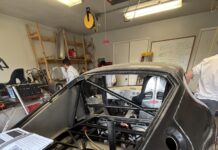Music is a means of expressing emotion and passion. Whether it be The Fray’s tragic How to Save a Life or IZ’s dreamy Somewhere over the Rainbow, music can exhibit love and excitement and grief and despair in a way that no other art form can, with a story of chords, melodious and dissonant, that sound straight to your head and revive relatable experiences and inspire uncontrollable fervors. Making music intensifies the excitement, for the story being told is yours. You control the volume, you control the tone.Your interpretation tells your tale and evokes emotions that words never could. With a myriad of health benefits on top of that, there is no good reason why you shouldn’t start playing an instrument today.
“I’ve always liked music as long as I can remember,” said Zane Crownover, assistant director of the Jesuit-Ursuline Ranger Band. “I do remember being a young kid in my hometown in Texas and seeing the marching band in the 80s marching down the street and just playing festive music. I remember seeing a xylophone player carrying his instrument in an old fashioned marching carrier and I was always just fascinated by music. Then when I was a 6th grader the junior high band came to our school and did a little presentation and I was like – That’s really cool! I think I would like to try that! And then from my first day in band I just got bit by the music bug and I loved every minute of it.”
“One of my favorite things is marching band rehearsal in the morning, the sun starts to rise no matter what’s going on on the field – it’s a very surreal moment, God is all around us and giving us this wonderful gift of music and nature and I’m just thankful.”
“As a kid music was the only thing I did and by the time I was 8 or 9 I decided it was something I wanted to do forever and ever. And I’m lucky enough to be able to do it as a career,” said Hanyuan Wang, a professional musician in Dallas.
Musical proficiency comes with social benefits too. Not only is the thrill of performance exhilarating, but it establishes you as an interesting person and instantly connects you with a whole new clique of people, people who share a common love of storytelling and will support you throughout your own journey. Musicians have a sense of belonging, a devotedness towards art and each other that isn’t quite matched by any other activity.
“We all go through the same thing. In different variations we’ve all had bad auditions, we’ve all had bad days. We share practice tips. We know what it’s like to do things through repetition and not have it go well. We all share that because we all go through it,” explained Wang.
“Music reaches everybody on a very deep level. Music can mean different things to different people, but music is universal; it speaks to everybody,” Crownover added. “When you have a shared musical experience it brings people together in a way that nothing else does. My wife and I met in marching band in college and some of my best friends are people that I met in university band. My oldest childhood friends were friends of mine from the marching band in high school.”
Here at Jesuit, this aspect of musicianship is particularly prominent in the Jesuit-Ursuline Ranger Band, where over 80 students from Jesuit and Ursuline gather with a unifying zeal.
“The community in band – it’s like a family,” commented Michael Miramontes ’18. “We are really close, I’d say. It just happens, connections are made, people become friends. I’ve just learned to love it,” he continued. “It’s my passion.”
“I love the community, it’s just so loving and everyone cares about each other. And if you ever have a problem you can go to anyone in the band and they’ll help you out regardless of what the problem is,” added Rachel Pierce’19 of Ursuline.
On top of the social benefits, learning an instrument teaches essential life skills like time management, practice, and public performance.
Crownover noted, “Music has taught me to be a better listener, taught me to be kinder, taught me to be nurturing, music has inspired me to work hard through tough times, music has taught me to have fun, just soak up the moment.”
“You have critical thinking skills, problem-solving, you learn to concentrate for a long period of time, you learn to deal with stress in different situations,” added Wang. “You learn to make sure that you know something really well.”
“I’ve learned that even when you know the marching and you know all the drill there are always little things you can fix, it’s never 100% perfect. And that applies to literally everything. The directors are just so awesome about getting everyone into it and keeping us going regardless of how bored you might be just doing the same thing over and over,” said Pierce.
“It’s a skill that you can take beyond high school. It’s something you can do for the rest of your life,” explained Miramontes.
“If you’re considering joining band just do it. It’s honestly one of the best things that I’ve done,” said Pierce.
Crownover concluded, “Jump in and do it. I’ve never heard anybody say ‘man I wish I didn’t have this great background in music’ or ‘I wish I didn’t learn to play piano’ or ‘I wish I didn’t know how to play the trumpet’ – I’ve never heard anybody say that.”






